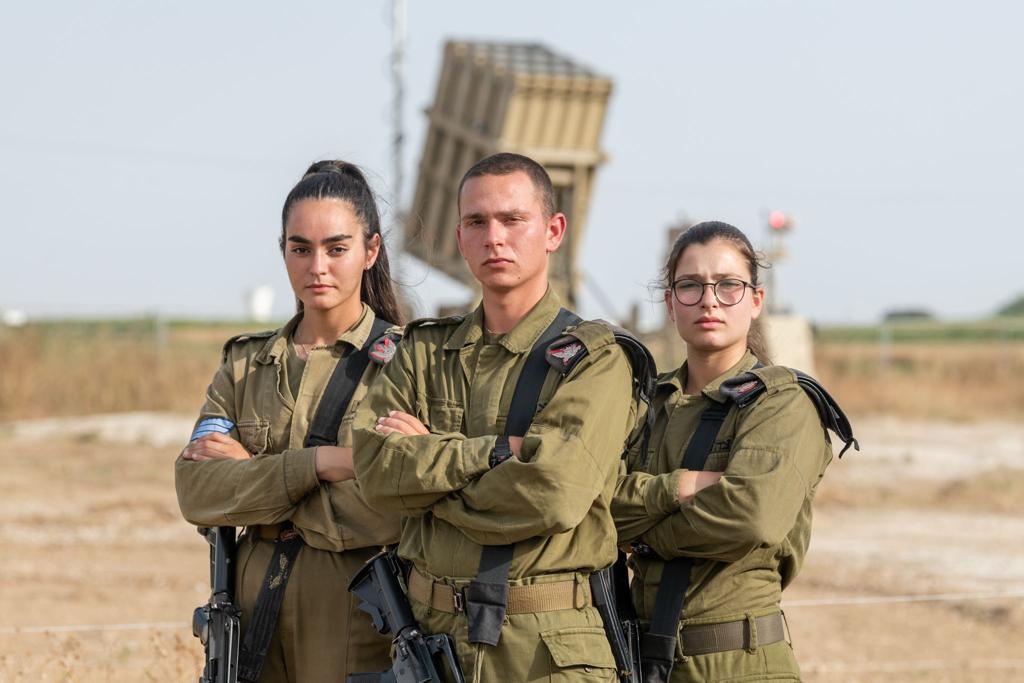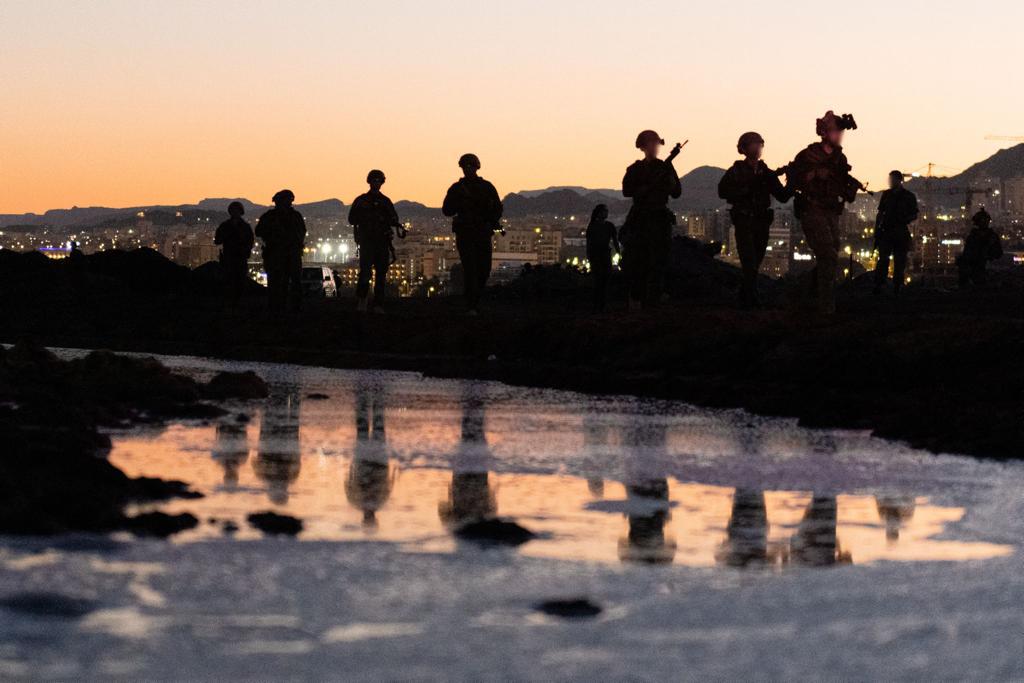Israel marks 75 years since the establishment of the IDF – but is the ‘people’s army’ title still relevant?
Less than half of potential recruits enlist in Israel’s military; a growing number of Israelis support the idea of a professional army

Seventy-five years ago this week, Israel’s first Prime Minister David Ben-Gurion signed the order that established the Israel Defense Forces. The IDF – armed forces of Israel – was officially founded on May 31, 1948, just two weeks after Israel’s Declaration of Independence.
Dozens of local authorities across the country are expected to light up public structures in green on Wednesday to salute the men and women serving the army and to honor its reserve forces.
For the occasion, the IDF has published an online gallery featuring 75 photographs from its archives, highlighting some of its activity over the decades. But perhaps the picture that best captures the significance of an Israeli army was posted on the IDF’s official Instagram account on Holocaust Remembrance Day.
While the State of Israel was not established because of the Holocaust but rather in spite of it, the Israeli military was created to enable the Jewish people to defend themselves. In that sense, the phrase ‘Never Again’ is the epitome of the IDF’s purpose.

“The order of the day for the establishment of the IDF was sealed by the oath of those wearing the uniform, tasked with defending the country. This oath is still repeated today by young recruits, as it passes through generations,” said IDF Chief-of-Staff Lt.-Gen. Herzi Halevi in a statement.
“We will continue to keep the promise, dedicated to the defense of the homeland and the freedom of Israel, and to maintaining the security of the country and its citizens,” he continued.
Halevi referenced the IDF’s anniversary in his speech last week at the Herzliya Conference, saying: “Looking at the world and the Middle East today, we will need to be strong in order to continue and to prosper here, and to succeed when necessary. The ‘people’s army’ is central to this resilience – a duty which is a sense of mission.”

However, the concept of the ‘people’s army’ has been eroded over the years. In fact, less than half of Israel’s enlistment population (age 18) have joined the IDF’s ranks in recent years.
In 2020, only 46.6% of potential recruits enlisted for military service. About 7% chose to do ‘civilian service’ instead, and 46% did not report to any military or civilian duty at all. Among them, 36% were Orthodox (Haredi) Jews, 54% minorities (mostly Arabs) and 10% were Jews who were exempted for other reasons, including a refusal to serve.

A report published by the nation’s state comptroller found that the draft rate in Israel has been in decline in recent years. Compared with data from 2016, the percentage of Jewish men who did not serve in the IDF has gone up by 3.5% by 2021 and 2.5% for women.
In recent months, the IDF has been in the crosshairs of several public debates in Israel over mandatory and reserve service. The trend was ignited as part of a larger dispute over potential changes to the country’s political, judicial and social status-quo.
Anti-government protests that emerged against the backdrop of a controversial judicial reform have rekindled tensions that were brewing below the surface for many years. The exemption from military service by Haredi and Arab sectors of the population was one of them.

Another point of contention was the refusal of some IDF reservists to report to duty in protest against the government’s policy – a phenomenon that was harshly criticized by Prime Minister Benjamin Netanyahu and others. Some analysts say that this – and not the mass protests – was the ‘straw that broke the camel’s back’ and pushed the government to engage in talks with the opposition.
Situations of this kind could have been avoided, claim those who advocate in favor turning the IDF into a professional, volunteer army, like in the United States. Apparently, such an idea has been gaining traction in the Jewish state.
According to a 2021 survey by the Israel Democracy Institute, almost half of Israeli Jews support making the IDF a professional army.
This is not likely to happen anytime soon, but meanwhile in the present, Israel’s Defense Minister Yoav Gallant has approved a new service outline that will grant significant salary increases for active and reserve combat soldiers. It also shortens mandatory service time for administrative positions.

While the IDF has undergone many changes over the years since its establishment 75 year ago, perceptions of military service in Israel have not changed as much.
Military service plays a major role in job opportunities in both the private and public sectors in Israel. IDF soldiers who filled meaningful positions during their service, will likely continue to find it easier to land a job in key positions in various industries. Those serving in the highest ranks of the military often end up going to politics after retiring from service or other leadership roles.

Tal Heinrich is a senior correspondent for both ALL ISRAEL NEWS and ALL ARAB NEWS. She is currently based in New York City. Tal also provides reports and analysis for Israeli Hebrew media Channel 14 News.













